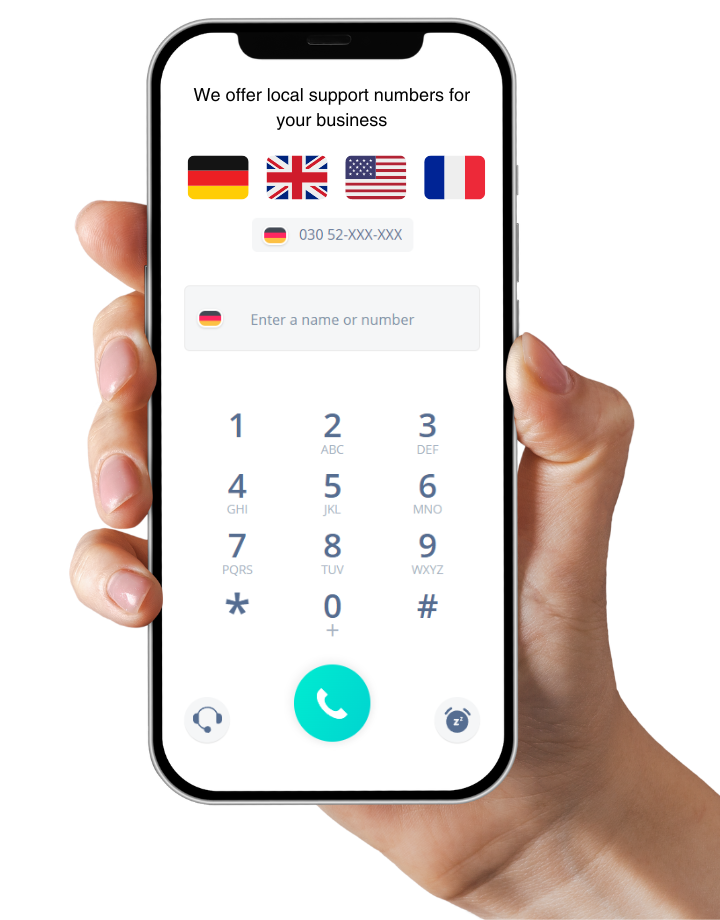Call centers are a cornerstone of modern business operations. They serve as the critical touchpoint between companies and their customers, facilitating direct engagement, support, and service. As a business owner or manager, deciding whether to hire an inbound or outbound call center is crucial. Each type has distinct functions, advantages, and use cases that should align with your business goals and objectives. This guide will help you understand the key differences between inbound and outbound call centers, enabling you to make an informed decision.
From managing customer inquiries to driving sales, call centers are indispensable for various customer engagement needs. When selecting between an inbound or outbound call center, it’s important to assess your business requirements and choose the best model. We’ll explore the nuances of both types of call centers, contrast their objectives and required skill sets, and discuss key factors to consider when making your decision. By the end of this article, you’ll be equipped with the knowledge to strategically hire the call center type that optimally caters to your needs.
Understanding Inbound vs. Outbound Call Centers
Before diving into specifics, let’s quickly recap the definitions of inbound and outbound call centers:
Inbound Call Centers
Inbound call centers primarily handle incoming customer calls seeking assistance, support, or information. The agents focus on receiving and resolving customer queries on products/services, providing technical support, and processing orders or payments.
Outbound Call Centers
In contrast, outbound call centers involve agents proactively making calls to customers or prospects for purposes like sales, surveys, lead generation, and other marketing campaigns.
While inbound centers concentrate on customer service and support, outbound centers drive proactive outreach for sales and marketing goals. Both models play important yet distinct roles in interacting with customers and prospects.
Inbound Call Centers: Functions, Benefits & Advantages
Inbound call centers are the critical customer-facing arm for organizations across diverse industries. They handle all incoming calls from customers who may have various needs, from basic inquiries to complaints. Key functions of inbound call center agents include:
- Fielding Product Inquiries: Agents respond to customer questions about product features, pricing, availability, shipping times, etc.
- Providing Technical Support: Agents troubleshoot and resolve technical issues customers face with products/services.
- Processing Transactions: Agents handle orders, payments, refunds, appointment bookings, and other transactions.
- Addressing Grievances: Agents listen, empathize, and provide satisfactory resolutions to customer complaints.
- Conducting Surveys: Agents conduct satisfaction surveys or feedback interviews to help improve products and identify customer pain points.
- Providing 24/7 Support: Many inbound centers offer round-the-clock assistance for maximum customer convenience.
Advantages of Inbound Call Centers
- Faster Response to Customer Queries: Real-time, dedicated assistance results in higher satisfaction.
- Increased Customer Retention and Loyalty: Effective issue resolution leads to positive service experiences.
- Lower Costs: Leveraging technological solutions like IVR and automation optimizes efficiency.
- Better Insights: Analyzing call data improves products and services by identifying common customer issues.
- Flexible Scaling: Call centers can match call volumes during peak times, such as holidays for retailers.
Inbound call services are especially vital for customer-focused sectors like telecom, retail, hospitality, healthcare, financial services, e-commerce, and software/technology. Skilled inbound agents drive higher customer satisfaction levels in these industries.
Outbound Call Centers: Functions, Benefits & Advantages
Outbound call centers take a proactive approach by having agents initiate contact with potential customers and leads. Key functions of outbound call centers include:
- Lead Generation: Agents make cold calls to prospects to introduce products/services and qualify leads.
- Direct Sales: Agents use phone channels to sell products and services by highlighting features, building rapport, overcoming objections, and closing sales.
- Conducting Surveys: Outbound teams conduct surveys for customer satisfaction, product feedback, and market research.
- Non-Profit Campaigns: Charities leverage outbound calling for fundraising campaigns.
- Appointment Setting: Agents call potential customers to generate interest and set up meetings with the sales team.
- Upselling: Agents contact existing customers to sell upgrades or additional products.
Advantages of Outbound Call Centers
- Increased Sales and Leads: Proactively contacting a broader audience of potential customers.
- Access to New Markets: Expanding reach beyond existing customer bases.
- Higher Conversions: Personalized sales pitches based on customer needs analysis.
- Competitive Edge: Generating new leads and sales opportunities before competitors.
- Productive Agents: Using automated dialers, call recording, and other technologies enhances efficiency.
Outbound centers are extremely useful for sales-driven industries like financial services, insurance, real estate, e-commerce, and more. Their wide reach and proactive approach help achieve sales goals and business growth objectives.
Inbound vs. Outbound Call Centers: Objectives and Skill Sets
A key differentiator between inbound and outbound call centers is their contrasting primary objectives. Inbound centers aim to deliver prompt, accurate resolutions for customer queries and issues. Outbound centers work to generate new sales leads, convert them into customers, or gather pertinent market insights.
Inbound Call Centers
Inbound call centers aim to resolve customer queries and issues accurately and swiftly. Agents need to be skilled at:
- Active Listening and Clear Communication: Understanding customer problems and explaining solutions clearly.
- Problem Diagnosis and Troubleshooting: Identifying issues and suggesting fixes.
- Product and Process Knowledge: Familiarity with the company’s offerings, policies, and workflows.
- Attention to Detail: Precisely capturing customer input and orders.
- Multitasking and Adaptability: Handling high call volumes and evolving with new products and policies.
Outbound Call Centers
Outbound centers aim to acquire new customers and maximize sales. Their agents need skills like:
- Sales Expertise: Proficiency in sales processes and closing techniques.
- Persuasion and Negotiation: Highlighting product benefits and negotiating to close sales.
- Resilience and Grit: Tenacity to make repeated cold calls and overcome rejection.
- Goal Orientation: Focus on targets like call quotas and revenue goals.
- Motivational Personality: Energetic and enthusiastic about driving sales.
Inbound vs. Outbound Call Centers: Factors When Choosing
Determining whether to hire inbound or outbound call centers depends on assessing multiple key factors:
Business Goals and Needs
- Do you primarily need to improve customer service and retention or acquire new customers?
- Will the call center be used for sales, service, or both?
- What are your target KPIs – CSAT, revenue, leads?
Budget Considerations
- Outbound centers require significant upfront investment in lead generation and specialized agents.
- Inbound centers have more predictable operating costs after initial setup.
Integration with Systems and Operations
- How will the call center integrate with your CRM, contact center software, payment systems, workflows, and existing processes?
Scalability for Growth
- Assess the capabilities of call center vendors to scale operations based on your growth and peak demand.
Technology Needs
- Identify required tools like call center software, IVR, call recording, analytics, and automated dialers.
Conclusion
Inbound call centers excel in customer support, while outbound centers drive sales. Assess your objectives, growth plans, budgets, and technology requirements to decide.
At RepConnectors, we offer tailored customer support and lead generation services. Whether you need 24/7 customer assistance or proactive sales outreach, our skilled agents are ready to help. Contact us to find the right solution for your business needs.



